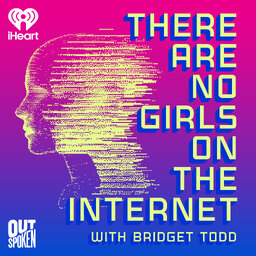Big Tech and Their Responses to Black Lives Matter
Everything feels awful right now, but it's not all doom and gloom. Employees at big tech companies like Facebook are pushing platforms to be better and they might just be one of our best resources. Catherine Bracy, founder of the TechEquity Collaborative, explains how tech staffers are pushing companies to move beyond a Black Lives Matter statement, and make real change.
Read Catherine's TechCrunch piece: https://techcrunch.com/2020/06/11/tech-companies-its-time-to-show-that-black-lives-really-matter-to-you/
Learn more about the TechEquity Collaborative: https://techequitycollaborative.org/
Send us an email at Hello@Tangoti.com
Learn more about your ad-choices at https://www.iheartpodcastnetwork.com
In 1 playlist(s)
There Are No Girls on the Internet
Marginalized voices have always been at the forefront of the internet, yet our stories often go over…Social links
Follow podcast
Recent clips

BAFTAs racial slur; Nicki Minaj bot network; TikTok “Psychic” faces Defamation trial for University of Idaho murders – NEWS ROUNDUP!
1:16:39

A TANGOTI Announcement We've Been Sitting On
47:34

Chris Pratt Is Hawking an Anti-Abortion Prayer App; Elon's Grok Is Doxxing Women; DOGE Bros Let ChatGPT Do Their Job; Trump’s Big DEI Loss – NEWS ROUNDUP
1:07:04
 There Are No Girls on the Internet
There Are No Girls on the Internet